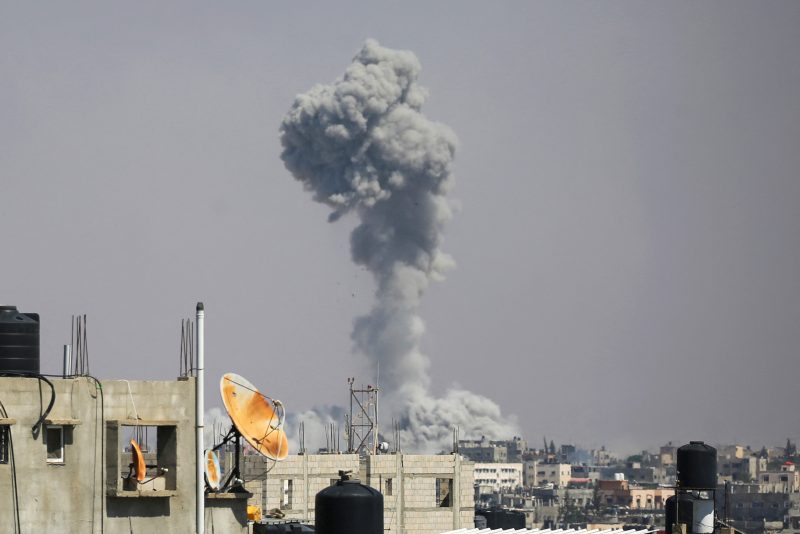In a recent development that has caught global attention, the United States has decided to pause the shipment of thousands of bombs to Israel amid the ongoing rift between the two countries over the Rafah border crossing issue. This decision marks a significant shift in the dynamics of the relationship between the US and Israel, two long-time allies with a history of close military cooperation.
The decision to halt the shipment of bombs to Israel comes amidst escalating tensions in the region, particularly in light of the recent clashes at the Rafah border crossing. The Rafah crossing, which serves as a key entry and exit point for Palestinians in the Gaza Strip, has been a focal point of contention between Israel and the US in recent weeks. The US has been critical of Israel’s handling of the crossing, accusing the Israeli government of imposing unjust restrictions on the movement of people and goods in and out of Gaza.
The decision to halt the shipment of bombs to Israel underscores the growing unease within the US government over Israel’s actions in the region. By withholding military aid to Israel, the US is sending a clear message that it expects its allies to adhere to international standards of conduct and respect for human rights. This move also reflects a broader shift in US foreign policy, with the Biden administration signaling a more cautious and measured approach to the Israeli-Palestinian conflict.
The decision to pause the shipment of bombs to Israel has sparked intense debate within both countries. While some view it as a necessary step to hold Israel accountable for its actions, others see it as a betrayal of a longstanding ally. The move has also raised concerns about the impact on Israel’s security, as the country relies heavily on US military aid to defend itself against regional threats.
In the midst of this diplomatic rift, it remains to be seen how Israel will respond to the US decision and what this will mean for the future of the US-Israel relationship. As tensions continue to simmer in the region, it is crucial for both countries to find a constructive way forward that addresses the underlying issues at the heart of the conflict.
Overall, the decision to halt the shipment of bombs to Israel represents a significant shift in US policy towards its ally and underscores the complexities of navigating the Israeli-Palestinian conflict. As the situation continues to evolve, it is imperative for all parties involved to engage in dialogue and diplomacy to de-escalate tensions and work towards a lasting peace in the region.

